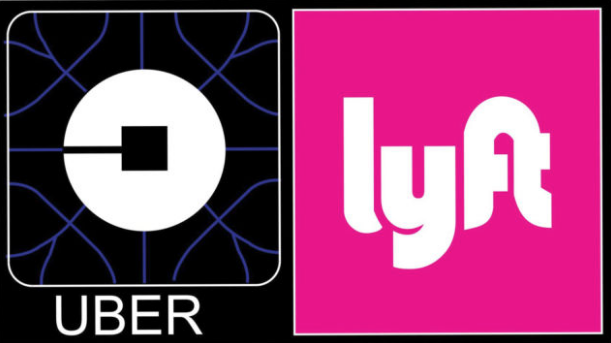Although the gig economy still employs only a tiny share of American workers, at the margin it might help to explain the relatively strong labor market. Today, an unemployed worker has an option not available as recently as 2000—working as an Uber driver. This may reduce what is often (and misleadingly) called “involuntary unemployment”.
Of course governments cannot leave well enough alone. Soon after the ride sharing companies began breaking up the government-created taxi cartels, the regulators struck back by applying minimum wage laws to drivers—even though they are independent contractors. That then created an additional unintended consequence, as these sorts of regulations always do. How do we determine the number of hours worked? Is it hours spent in the car, or hours spent actually driving customers? The regulators opted for hours spent in the car. But many drivers work for more than one company—so who pays for the downtime? The regulators decided to split the cost evenly, a practice that favors Uber over its competitors:
Because Uber is bigger, drivers are most likely to be called to drive for them first. But all the dead time on the app counts against smaller companies like Lyft and Juno, even if drivers aren’t picking up rides. . . .
According to Juno’s filing, the TLC tried to address this in a December revision to the rule by splitting the idle time evenly between each company. “Far from fixing the Rule’s flaws,” Juno wrote, “this new methodology exacerbates them by disproportionately harming companies like Juno”—a fairly new competitor in the market that relies on drivers already hooked on Uber and Lyft, but that offers more flexibility by freeing them from ride quotas.
Markets want to be free, but governments abhor a situation where everyone who wants to work is free to work. In a free labor market the government would not be able to control wages and working conditions.


READER COMMENTS
Benjamin Cole
Feb 2 2019 at 7:36pm
I like Uber, but even better would be to allow average Americans to establish their own businesses in urban areas. You see this in many nations, where pushcart, motorcycle sidecar, or truck vending is considered the norm, and my understanding is even considered a right in India.
Due to economies of scale, most jobs and businesses are located in urban regions today. The small farm has become an artifact of the past.
So populations are crowded into cities, where most people are prevented from opening up their own businesses due to barriers to entry. If you wish to open up a restaurant, you must do so on land that is owned for that purpose, and then meet whatever other extensive regulatory apparatus the city wishes to impose upon you.
Uber does offer self-employment to a small slice of people ( my understanding is that Uber hires contractors not employees).
I hope the day comes that American libertarians regard Uber as rather insignificant preamble to a book.
Matthias Goergens
Feb 4 2019 at 3:02am
Running a supper club is a good entry into the restaurant business.
Singapore banned most push cart selling decades ago and moved them into out hawker centres. But we don’t have minimum wages here either.
Matthias Goergens
Feb 4 2019 at 3:06am
Scott, back about a decade or more ago hawking stuff on eBay was a popular pastime to soak up underemployed hours. Stuff that you’d otherwise find on a flea market, or from household dissolutions.
Not sure how much that’s still the case, since eBay moved towards professionalising their sellers.
Seppo
Feb 4 2019 at 4:09am
I remember reading some relatively legit sounding worries where ride sharing companies have “hunted” new drivers among people without suitable cars by exaggerating income potential and arranging car leases for the drivers.
If the car lease is expensive enough and potential income for driver in a particular area is low, this can lock some drivers into very low paying gigs just to cover the car lease costs.
–
I think Uber has since stopped its car leasing arm, but I’m sure that there are still plenty people with sub-prime car loans and too little income from Uber to make it really worth it.
–
It is kind of sad that we need the help of Uber and Lyft to break down the taxi permitting regulation.
Matthias Goergens
Feb 4 2019 at 5:16am
Alas, a minimum wage would not help here. You can imagine the many ways this could go wrong, eg pressing for more expensive cars with more expensive leases.
Full disclosure and information might (have) help(ed). Companies caring about their public image is also useful.
Hazel Meade
Feb 8 2019 at 1:26pm
How does the lease prevent people from paying it off with money from a better paying job?
Do the lease terms mandate a minimum number of hours be spent driving for Uber?
Thaomas
Feb 6 2019 at 1:13pm
Libertarians are good at identifying the real cost of minimum wages but do not discuss the advantages from the higher incomes received by those who do not lose their jobs as a result of the minimum wage. Minimum wages are basically a tax on wages with the proceeds distributed to workers. This is obviously a poor way to finance a distribution of income to workers and not obviously the best way to distribute the income. I find it odd that principled opponents of the minimum wage never end their analysis with a coda suggesting substitution of a higher EITC for minimum wages.
Comments are closed.